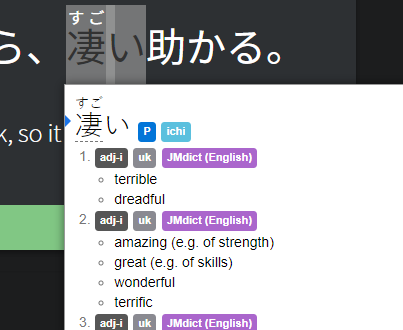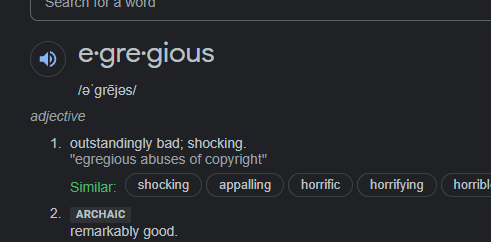Yes hello please I have a question.
This sentence is from だけでなく | Japanese Grammar SRS
The question isn’t about how the grammar point works but a word at the end
彼氏が料理だけでなく、家事も出来るから、凄い助かる。
Not only can my boyfriend cook, but he can also do housework, so it is really helpful.
My question is about this part : 凄い助かる
The website says it means “it is really helpful.” And I’m sure that’s what it means.
Now I use yomichan which I’m sure a lot of you do and when I select it I get this.

Here is a jisho link: 凄い - Jisho.org
The first result is terrible. And yes the second result is amazing. Which is basically opposites.
Alright the question. How am I really supposed to figure out which definition is good for which part beyond context. It’s something I struggle with and this sentence is just an example. But what’s a good method for figuring out which definition is good. Because when I got the review and tried to self translate it I thought the sentence meant it “Wasn’t helpful” that he did that. Which is just so far off from the spirit of the sentence that that is just a failed translation on my part.
So please, if you got any tips, what’s a goodish method of knowing what they mean beyond just knowing already.




